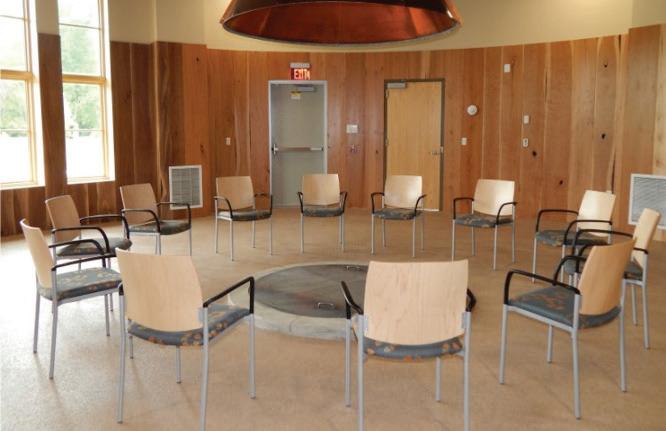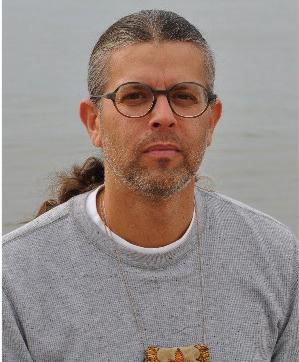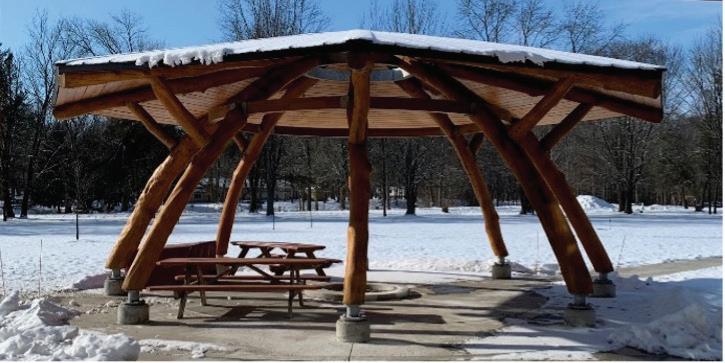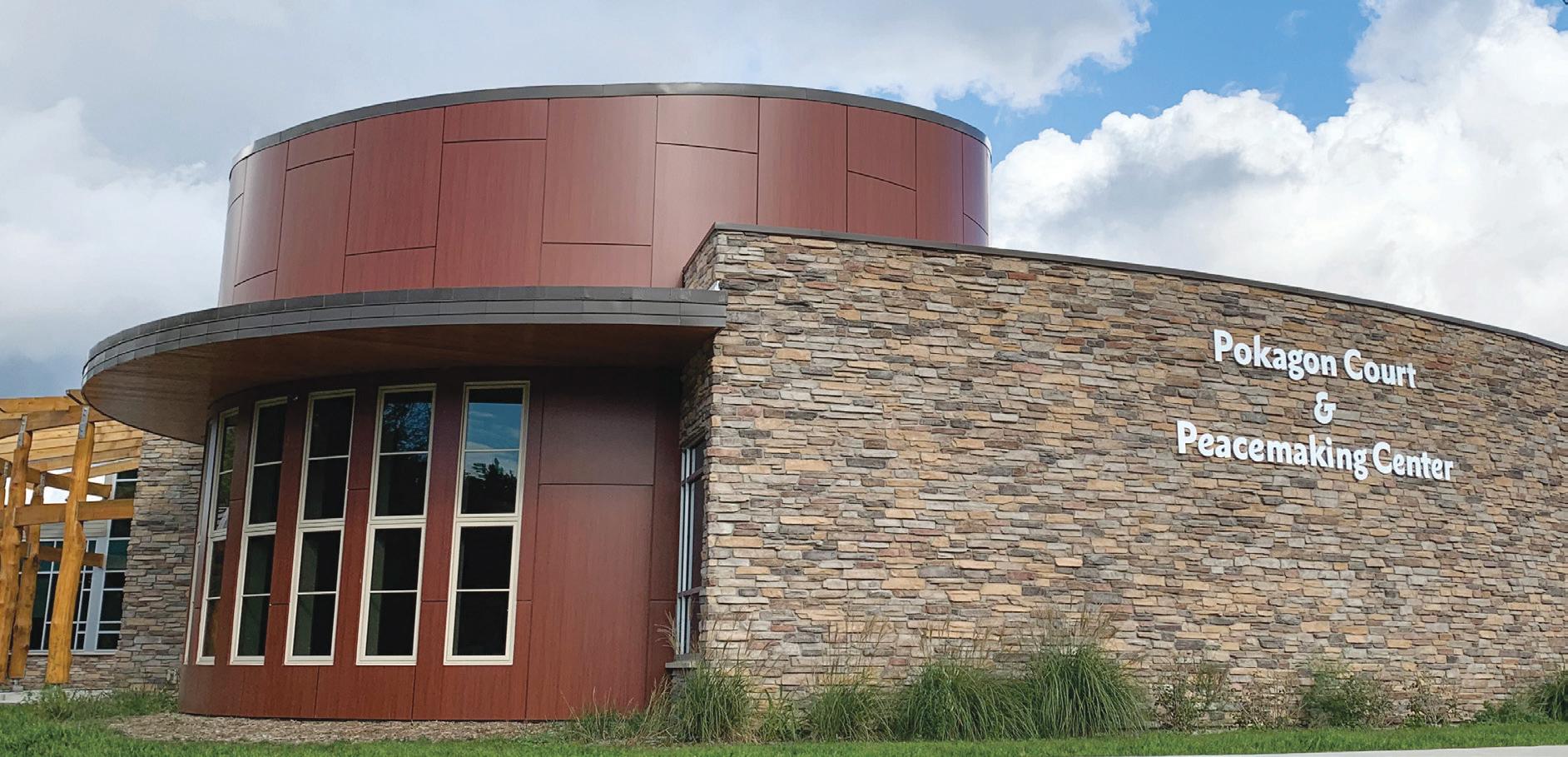
6 minute read
Dbakwnëgéwgëmëk
Tribal Judiciary
The Judiciary is an independent branch of government established by the Constitution of the Pokagon Band of Potawatomi Indians. The Tribal Court system consist of two levels: the trial level (Tribal Court) and the appellate level (Court of Appeals). The Pokagon Band Judiciary has been an Indian Country model of stability and continuity. Each of the judges have served in the Judiciary since inception of the Pokagon Band courts in 2003 until the recent resignation of the Chief Justice Robert Anderson on his appointment as Solicitor of the United States Department of the Interior. In 2022 Associate Justice Matthew L.M Fletcher was appointed Chief Justice.
The Tribal Court Judges
Chief Judge Michael Petoskey (Grand Traverse Band) is a Michigan attorney with more than 38 years of experience developing and implementing tribal courts in Michigan. He has served on the tribal courts for each of the seven federally recognized Tribes in the lower peninsula of Michigan. Associate Judge David M. Peterson is a retired judge from the 5th District Court for Berrien County, Michigan and is practicing Michigan attorney.
The Court of Appeals Justices
Chief Justice Matthew L.M. Fletcher (Grand Traverse Band) is the Harry Burns Hutchins Collegiate Professor of Law at University of Michigan Law School. Associate Justice Jill E. Tompkins (Penobscot) is the Court Staff Attorney for the Mille Lacs Band of Ojibwe Indians Court of Central Jurisdiction. She is leading the development of the Mille Lacs Band Healing to Wellness Court, Noojimo’wgamig Inaawanidiwag (Healing Journey). In 2022, Angela R. Riley was appointed to the Judiciary as an Associate Justice. Justice Riley is a is Professor of Law at UCLA School of Law and Director of UCLA’s Native Nations Law and Policy Center.
Ggëkéndamen dokmezwen We know the act of peace
Peacemaking is at the center of how the Pokagon Potawatomi people have always worked together to maintain order, communicate clearly, and bring about resolution in difficult times of disagreement, heartache, and wrong doings. In villages across Turtle Island, there are teachings that explain our place amongst all of Creation and how we maintain a humble respect for the life forces around us. We’ve hosted many elders and knowledge keepers here over the years, and they continually remark to us on how beautiful, resilient, and progressive the Pokagon Potawatomi people are.



Utilizing the tools provided to us through our Potawatomi culture to help heal and grow our families and community, the centerpiece of the Court is the Healing Fire Room. It’s a fully functioning indoor area where we can safely host talking circles and ceremonies around a central fire. The Peacemaking Center also has an outside fire area to host talking circles and ceremonies. The fire is at the heart of our identity as Potawatomi people. Fire has the ability to teach, strengthen, and bring out the best of our spirit, especially during times when we need to communicate clearly for the purpose of maintaining healthy family and community connections. In the same manner by which we see the Band prioritize efforts to revitalize our language, history, and cultural teachings, the traditional manner of resolving disputes and healing relationships is an essential part of living with our Potawatomi worldview.
In 2022, the Peacemaking Coordinator provided services for peacemaking circles and educational discussions within and outside the Pokagon Band. The Peacemaking Coordinator hosted students from St. Mary’s College, Notre Dame’s Center for Social Concerns, and law students from Michigan State University and Michigan University. In addition, we were honored to be part of the agenda activities for the Michigan Tribal-State-Federal Judicial Forum Fall Meeting. We took advantage of the opportunity to educate numerous State and Federal Court Judges on our very different worldview regarding justice. We are looking forward to developing a greater relationship with Departments within the Tribal Government to help spread awareness about Peacemaking and its benefits to citizens. By hosting gatherings, recruiting additional Circle Keepers, and helping the Court provide additional resources to the citizens, we look forward to even brighter days for our families and community.
Overview of the Work of the Court
Other work of the Court involves:
• meeting the needs of the Tribal government because it is a federally recognized sovereign nation; and
• providing an independent, fair forum for resolving disputes, conflicts and adherence to Tribal standards. Some of the duties and responsibilities are mandated by the Tribal Constitution. Other duties are the result of laws passed by Tribal Council. Yet, other duties are imposed by court rules, administrative orders or required by the inherent authority of the Judiciary as a branch of government. The Court meets these responsibilities by:
• establishing general rules of practice and procedure before the courts;
• collaborative governmental development for the implementation of the laws of the Band, Court Rules and Administrative Orders; and
• the judicial processing of actual cases transferred or filed in the courts.
Judicial Processing of Cases
The Pokagon Band Tribal Court is a court of general jurisdiction. Tribal Court continues to develop with the growth in the community. The Judiciary and court personnel are committed to providing a court system that reflects the values, culture and spirit of Pokagon Band Tribal community. The following graphs help to illustrate case work by the Tribal courts. To safeguard the public and court staff because of the pandemic, the Court conducted hearings by telephone or video conferencing unless it was necessary to have the hearing in-person with proper protections.
Number of Cases Filed Each Year
Types of Cases Filed in 2022– Total 362
• Redistribution of Per Capita Payments for Delinquent Child Support – 138
• Child Support Recognition and Enforcement – 103
• Civil Infraction – 59
• Foreign Judgment Recognition and Enforcement – 16
• Foreign Subpoena Recognition and Enforcement – 10
• Foreign Judgment Garnishment – 8
• General Civil – 6
• Criminal – 4
• Child Protection – 4
• Landlord Tenant – 4
• Civil Traffic Violation – 2
• Election Challenge – 2
• Personal Protection Order – 2
• Bankruptcy Deduction – 2
• Garnishment of Per Capita Payments by Tribe – 2
Number of Hearings, Scheduling Conferences, and Trials Scheduled Monthly in 2022 – Total 172
• January – 11
• February – 15
• March – 14
• April – 22
• May – 11
• June – 17
• July – 8
• August – 10
• September – 19
• October – 15
• November – 9
• December – 14
Bozho,
It’s been a pleasure looking back at all the Government milestones of 2022. I’m very proud of our government team and their work throughout the year.
You’ll remember that early in the year, Tribal Council approved the 2022 Grocery Card Program, which transitioned to the FSA Nutrition Benefit program in April. Can you believe that Social Services processed nearly 29,000 applications in 2022?
Seeing citizens benefitting from the Fixture, Appliance, Down Payment, and Rehabilitation Program was fulfilling. Our Housing Specialists and Administrative team processed nearly 2,500 applications.
Community & Housing Development (CHD) opened Byéwgëmëk – A Place You Come to Stay. Located at 58155 M-51 in Dowagiac, Byéwgëmëk provides housing for Pokagon Citizens and family members that need a temporary home. To date, we’ve offered short-term housing to several families due to homelessness, house fires, relocation, and other needs. The completion of Byéwgëmëk was followed up with the acquisition of Hillcrest Apartments and Hamilton Square Apartments in Dowagiac. Both properties will undergo extensive renovations, improving the living environment for our citizens and giving the city of Dowagiac a boost.
During the summer, 232 campers ages 5 – 17 enjoyed the annual Kë Gbéshmen summer youth culture camp. Kë Gbéshmen is a collaboration between Center of History & Culture and Education, with extensive support from Purchasing, Facilities, and our Tribal Police Department.
In our quest to strengthen our language skills and advance language conservation across the nation, the team at Ėthë Bodwéwadmimwat provided 695 translations or classes to our Tribal Citizens. Their services are in high demand as they processed more than 1,340 language requests.
Pokagon Health Services continues to grow in both services provided and staffing. This growth realized the most significant recorded billing revenue to date. It has always been the goal of PHS to increase grant and revenue dollars to mitigate the need for Tribal Government Funds.
As warmer weather approaches, look at the work the Kowabdanawa odë kė (They Watch Over This Land) team is doing as they recently began Phase 2 of the Dowagiac River Restoration Process. Removing the dam added 159 miles of river and stream access. With the river meandered, fish have returned to waterways that have not been accessible in 100 years. That’s great news for our citizens who fish.
Please spend some time reading the 2022 Accomplishment Report in full. I am immersed in our government work daily, and I was genuinely amazed at what our team accomplished in 2022. Our work is important to our sovereign nation’s development and builds the foundation for the next seven generations.

Migwėtth, Steve Rider Government Manager




